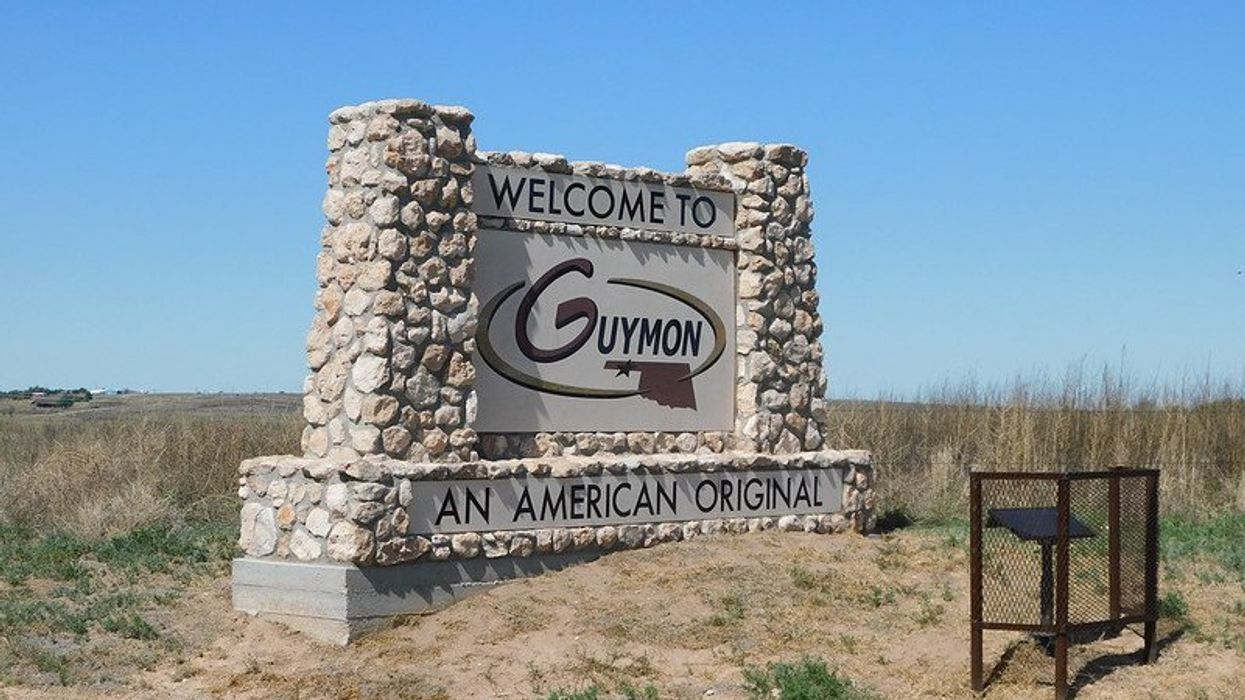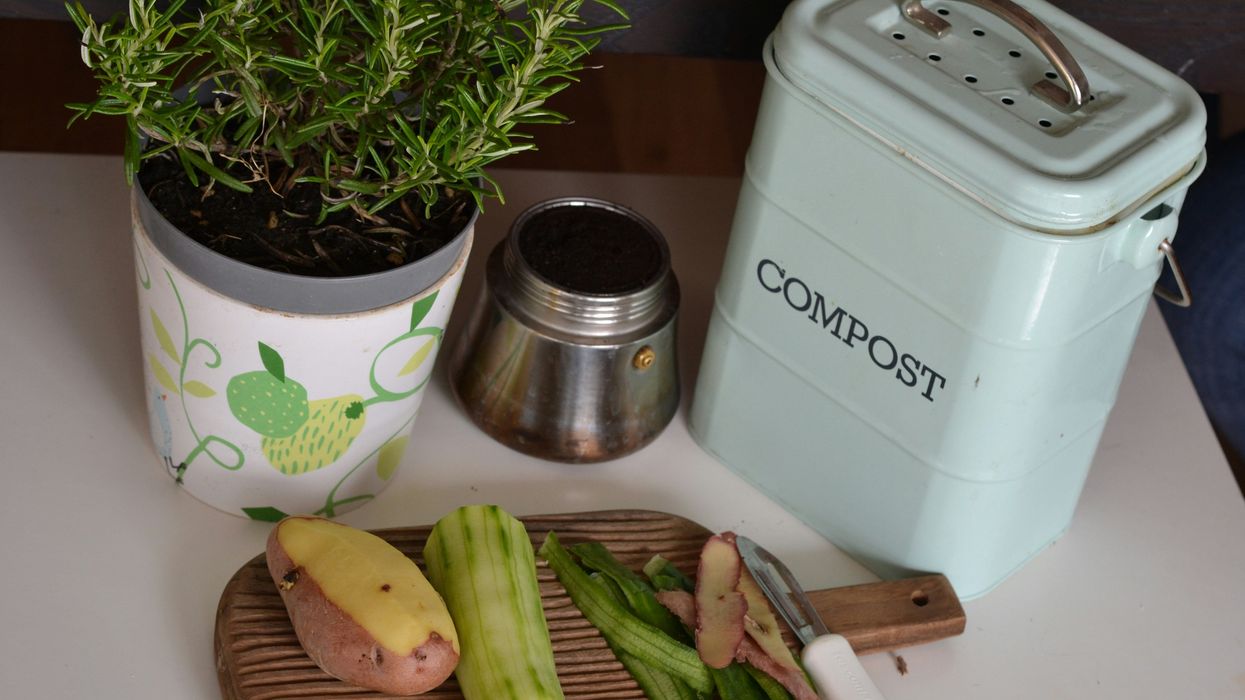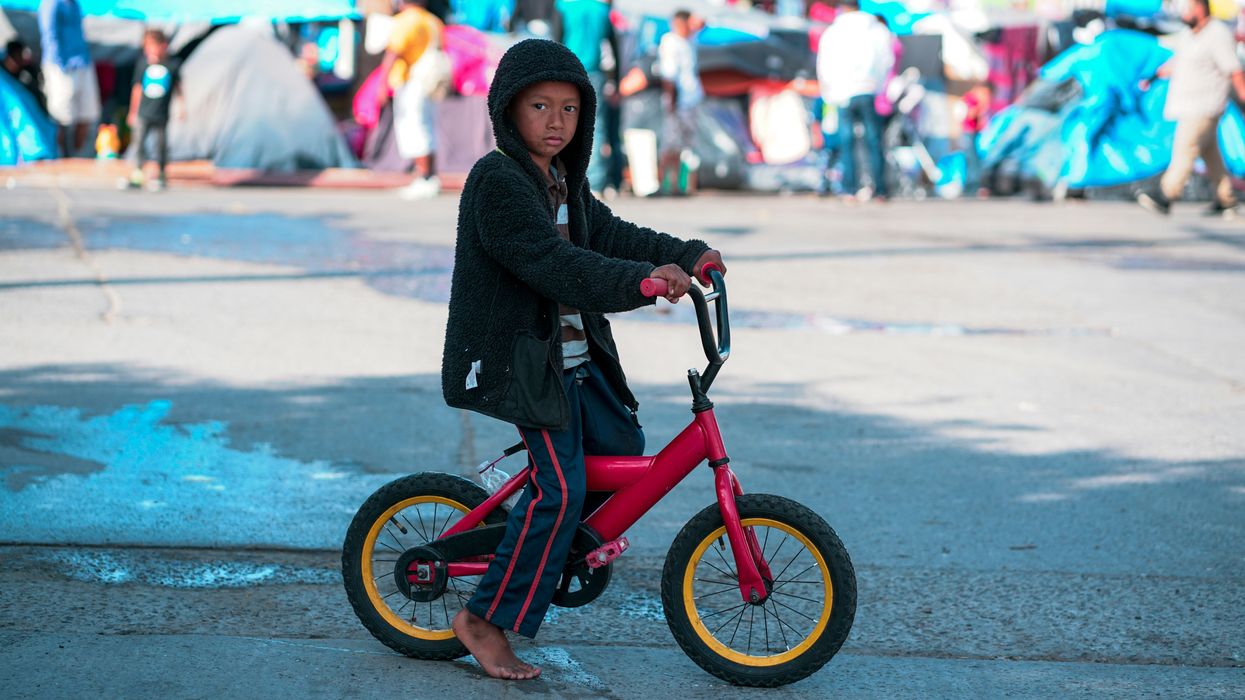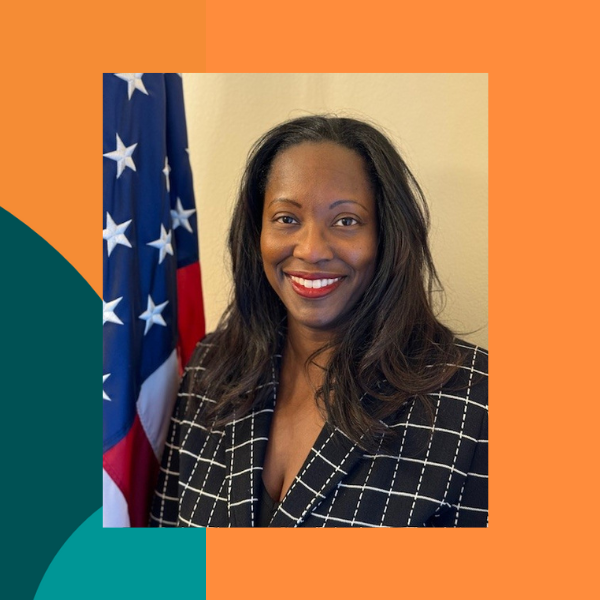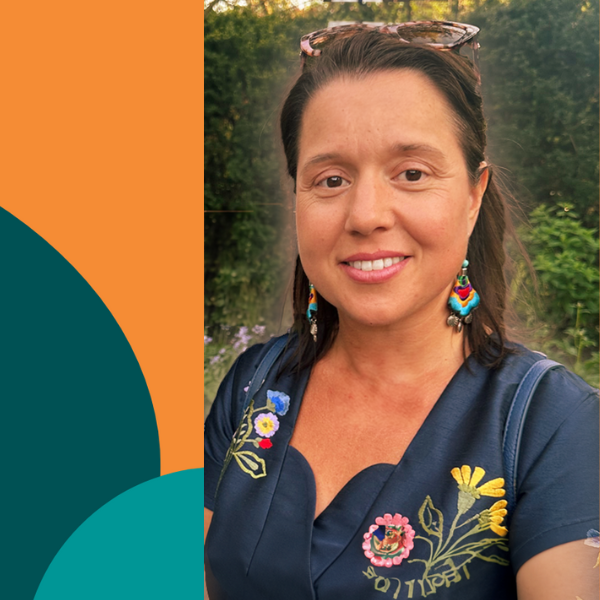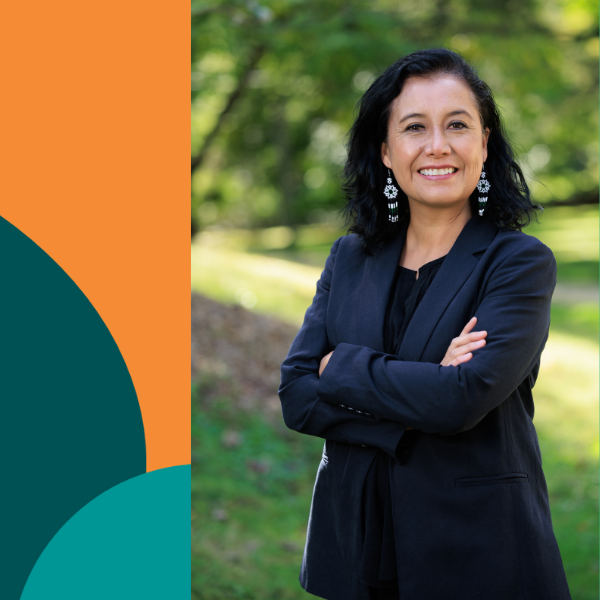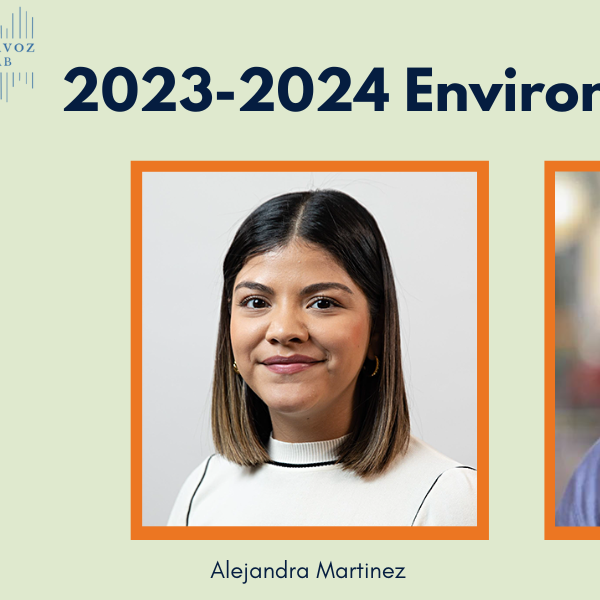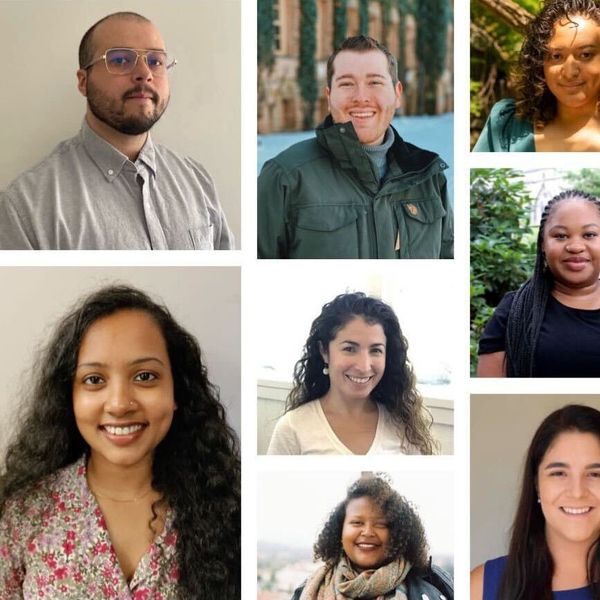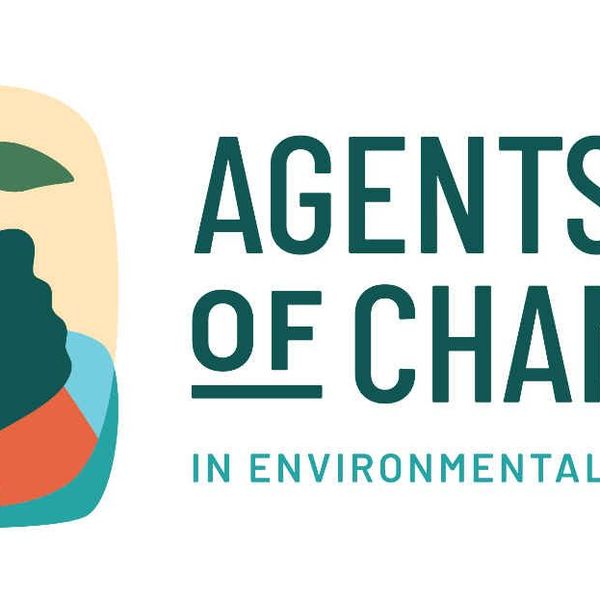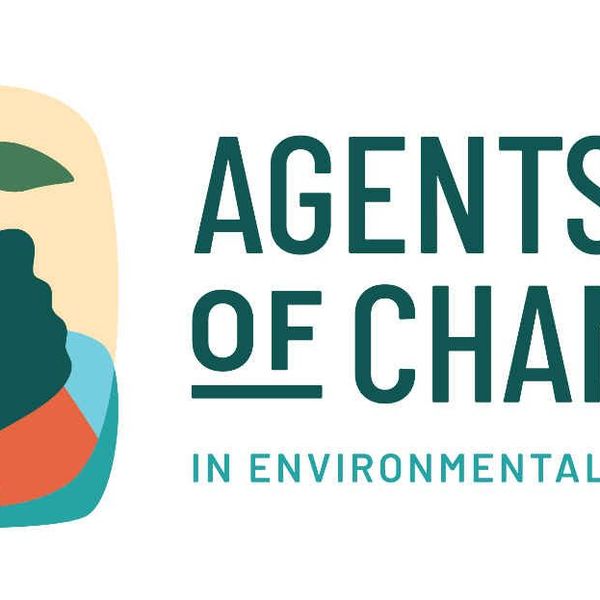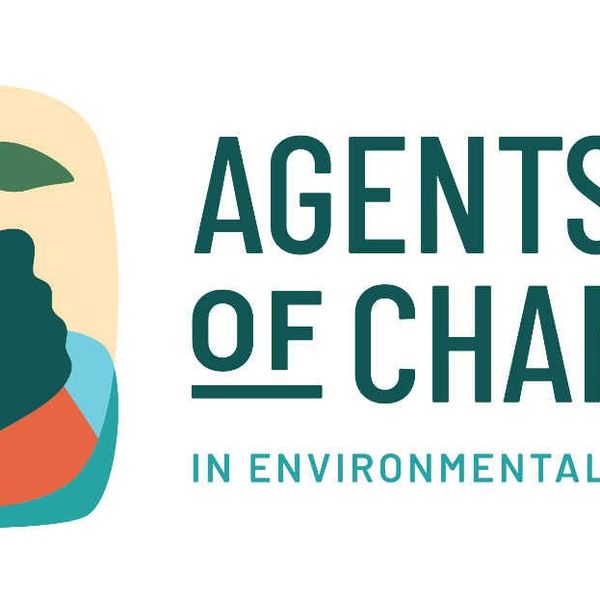Dr. Lisbeth Iglesias-Ríos joins the Agents of Change in Environmental Justice podcast to discuss why we must advocate for better workplace conditions for the people who grow our food.
Iglesias-Ríos, researcher at the University of Michigan and a co-investigator of the Michigan Farmworker Project, also talks about being raised by two strong women, her winding path to becoming a researcher, and ways to support migrant farmworkers.
The Agents of Change in Environmental Justice podcast is a biweekly podcast featuring the stories and big ideas from past and present fellows, as well as others in the field. You can see all of the past episodes here.
Listen below to our discussion with Iglesias-Ríos, and subscribe to the podcast at iTunes, Spotify, or Stitcher.
Transcript
Brian Bienkowski
I finally... we are, for the listener, we are recording in late April and I I just saw my first I believe they're called crocuses wildflowers poking here in my yard the other day. So yes, it's an exciting, always an exciting time to crawl out of winter here in Michigan. And of course, you are from a place far away from here that probably experienced much different weather. So I do like to start at the beginning. So you grew up in Mexico City raised by your mother and grandmother, can you talk about your upbringing and how you think it may have shaped you?
Lisbeth Iglesias-Ríos
Sure. I think I had a great childhood overall. We live in in borough in Mexico City in the southern part of the city known as Xochimilco. Xochimilco is a Náhuatl word that means "where the flowers grow." And in front of the house where I grew up, there was an empty lot, and people bring their vacas so their cows to graze. So the neighborhood really have a very rural feeling. But now things have changed a lot. And I grew up with my mom and my grandmother; basically, my memories, when I think about my grandmother are connected with food, the tradition, our culture. And as a child, I fondly remember going with my grandma to the Xochimilco market and enjoying the colors of the fruits, the flowers, the different smells of the market. My mom, my mom was a very talking about my mom was a very generous person. She said young woman started to work in as a teacher in a school and then she became a physician. She was an orthopedic surgeon, and her patients were actually children and loved her. And she was a type of doctor that will always have a big bag of lollipops for the children. My mother was a very smart woman and a person with a very big heart. And I have very lovely memories of her with these big parties, birthdays, piñatas and things like that. I also remember my mother always been very busy and not having a lot of I didn't see my mother very often. So I spent a lot of my childhood really in the hospital because that was the only way to see my mom. Very weird.
Brian Bienkowski
As a child, you don't know any different. Of course, your childhood is unique to you. So you don't know any different but I'm wondering if there's anything about being raised by two strong women that you think left an imprint on you or lead you down a different path?
Lisbeth Iglesias-Ríos
Definitely. I think education was a very important thing. My mom came from... my grandmother was a survivor of human trafficking. So we come from a family that have a lot of struggles, and education was a way to, to push us forward. So yes, they have my mother, you know, education was everything for my mother. And she instilled that on me. So yes.
Brian Bienkowski
And you can learn more about all of this, if you are listening to this in Elizabeth's excellent essay she wrote, and that's on ehn.org, we will have a link, of course, along with this podcast. So I'd like to ask everybody, what is the defining moment that shaped your identity up to this point?
Lisbeth Iglesias-Ríos
Yeah, I think there are many moments in different stages of my life. One very important, of course, was growing up in Mexico. My mother, as I mentioned, always instilled in me the love for our culture and our history, I'm very proud of my roots. Another key moment for me was when I left Mexico, I was 19 years old, I think, I went to live alone in Spain, just with my, my bag and anything else. So I spent 10 years of my life in Spain, and that, so basically, all my young adult life was in Spain. So I also have a very strong connection with that country. And I think that experience as being an immigrant shaped me as a person, and also my, my research interests and my career development here in the US,
Brian Bienkowski
100%. And we, of course, I want to talk about that research. It's of particular interest to me, being here in Michigan with you. But first, let's talk about the journey a little bit, which you alluded to. So I know you had to take on a whole bunch of jobs to pay for your first masters in clinical psychology. And then you worked as a counselor and a health worker. And I'm wondering, a lot of people kind of have this, I would call it a privilege to path of just kind of going straight through school and acquiring degrees. And you didn't have that. So what about these experience, you think, made you want to go into public health?
Lisbeth Iglesias-Ríos
Oooff, that is... there's a lot of things. But yes, I work in... So I basically left Mexico because the situation in Mexico was very difficult in terms of crime and many, the lack of opportunities. And I got accepted into this master program at the University of Barcelona, and I was getting very excited, and my mom supported me. And but I, you know, we didn't have money. So it was basically okay, I help you to pay for their plane ticket and the first month, and then you need to figure it out. And so I worked cleaning houses, as a nanny, worked in restaurants. At the same time, I was taking classes and I was working as a research assistant at the, in a substance abuse center in the Sant Pau Hospital in Barcelona. And then eventually, I got a job in one of the municipal clinics in Barcelona, and I was one of the counselors in the tobacco cessation program that we develop at the clinic, and I work with people with alcohol issues. And then I have this research opportunity in the US connected with the work that I was doing in substance abuse, and I came to Albuquerque, New Mexico. My, it was very tough, because, you know, my English was very limited. And it was very tough at the beginning. But I was able to, I started working in a nonprofit clinic in Santa Fe, in New Mexico, again, with a Spanish-speaking clients with substance abuse problems. And then at the same time, I was working in this Research Center on Substance Abuse. And and then we were working with these people, you know, they were mainly immigrants with DWIs. And just understanding the complexity of their lives. What it means to be an immigrant in a new country, new language, culture, and so forth really made me wanted to focus on issues that were more related to human rights and social justice. And I ended up meeting a professor in the MPH program, the Master's in Public Health at the University of New Mexico. And ... she invited me to her class in health policy. And I absolute... that opened my eyes, you know, to public health. And then, at the same time, I met Dr. Alexis Handal. She's an epidemiologist and an associate professor at the University of Michigan. And we I work with her here, but it was funny because you was my professor at the in the MPH. So basically, we I finished my MPH and then we didn't see each other for 10 years. And then we run counter each other and we're working together again. So it's very cool. So those two people, Dr. Iriar and Dr. Handal were very influential on the path that I took. Yeah.
Brian Bienkowski
And what a great opportunity to work with someone who was a mentor, at one point that is that is very cool. And so now your research focuses on precarious employment, labor, exploitation, and health inequities. So first, can you kind of give us tell us what you mean by precarious employment and how these three things are interconnected?
Lisbeth Iglesias-Ríos
Yeah, let me just start by telling you a little bit about the story. When I complete, I completed my doctoral training at the University of Michigan in epidemiology. But for my dissertation, I analyze data from survivors of labor trafficking in Southeast Asia. And this was part of a study called "The study of trafficking, exploitation and abuse in the Greater Mekong Subregion." It was basically Cambodia, Thailand, and Vietnam. And they are both professors at the London School of Hygiene and Tropical Medicine in the UK. So I was very interested in on on the doing something for my dissertation related to labor trafficking, I couldn't find any investigators in the US do in primary data collection. And these topic is much more evolved in Europe than here. So I found them. And so I went to London, just when they finished their data collection. And we established a research collaboration for me to use the data set and work on my dissertation. And this topic is is personal, to me, given that my grandmother was a survivor of human trafficking. So that's the story behind. But coming back to what is precarious employment? I don't think there is a single definition of what constitutes, constitutes precarious employment. It's a context is a concept that is very context-specific with the labor policies, programs and regulations in place, with the level of enforcement as well as cultural issues. Now, what may be considered here precarious, in other countries not be precarious. But in general, precarious employment is characterized by poor job features. So informal or temporal jobs, job insecurity, low wages, and limited or no benefits for the workers – essentially the gig economy. So but we are trying, in our research, we found workers, we are trying to think about a little bit different about this concept, proposing that precarious employment is not a, it's not something that is black and white, but coexist in a dynamic continuum. Because people usually don't follow linear employment trajectories anymore. You change your jobs, you.. before you stayed in a job until you retired, but is no longer like that, and people sometimes have more than one job. So on in this continuum, the working conditions, there's kind of an oscillation between what can be considered fair and decent labor, precarious labor, labor exploitation, and the most extreme form of exploitation. That will be labor trafficking, labor exploitation goes beyond precarity in that is more characterized by abuses to the workers, coercion, threats, cheating wages, extreme working hours. And the most important concept that we are trying to develop in, in this definition is the abuse of the vulnerability of the worker to obtain some benefit and when the consent of the worker to this job is irrelevant. So the point of the abuses of the vulnerability of an individual is quite important. And it's key for this concept of exploitation because not always exploitation is very evident, and not always is well-captured by our policies, regulations and laws. Case in point is the situation of H-2A farm workers with visas and legal contracts, and they're highly exploited. So essentially, this continuum of precarity and exploitation reflects on just social relationships, these assymetric dynamics of power and control over the workers that are intersected by the social vulnerability of the worker.
Brian Bienkowski
And you mentioned the example that has been largely the focus of your work and of course, this is this can happen in a variety of different types of employment. But can you talk about how and why farm workers are at such a risk to be affected by these labor inequalities and how does that manifest in health impacts?
Lisbeth Iglesias-Ríos
Yeah, well, unfair and unsafe working conditions eventually get you. It is well now that chronic stress impacts health, and there's there's this cumulative over love of negative experience the deteriorates health. Labor inequalities essentially manifest in health impacts in that workers may not have equal or enforceable labor standards and protections. For example, agricultural agricultural working sites, known as labor camps in Michigan and other places in the US for farm workers, are required to have one shower for every 10 People, one toilet and hand-washing sink for every 15 workers, one laundry tub for 30 workers. And also not all of the sites have laundry machines or dryers. So when I interview the workers, many say that they just pile clothes inside the room until they are taken once a week to do their laundry. These regulations, to me, seem outdated, given the vast evidence on pesticide exposure in farm workers, but they are in compliance with federal law. As you know, this law is established by the Department of Labor, Occupational Safety and Health Administration and have been adopted by the Michigan Occupational Safety and Health Administration. But as you can see, the standards are not sufficient to ensure that foreign workers have access to healthy living conditions. And we're talking about workers that are heavily exposed to dirt every day, and also chemicals. And some, on these working sites you also have families living in these housing units, you have children. Another example that is very important, I think, is in Michigan, is the migrant labor housing program. So they're in charge of doing the inspections of these agricultural working sites. And according to their 2021 annual report, the migrant-level housing program license more than 100 agricultural worker housing sites with more than 3,000 units with that capacity or almost 30,000 people, yet, that migrant housing program works with one bilingual office assistant and only seven inspectors, they are not all bilingual. And these are the people that are performing inspections in all the sites, in all the state, only for places they have five or more farm workers, because if there's less than five workers, there is not even inspections. So to me, these are examples of systems in place that potentially are creating labor and health inequalities.
Brian Bienkowski
I appreciate you talking about the system level. And I just someone who lives here want to bring it to a very personal level is I'm a cyclist. And I know when I go to say Traverse City and ride up Old Mission Peninsula, there are wineries dotting everywhere. And and then there are these camps or, you know, small trailer communities where farmworkers are working and it's hidden, and it's out of view. And if you're a wealthy person that wants to go up there and drink wine, you're you're looking at the vineyard and all of this is out of view. And I think that just it's it's a really kind of ugly system and symptomatic of our agricultural system kind of with large. So you mentioned Michigan and I think a lot of people probably think of California and other places when they think of immigrant farmworkers. So can you talk about the Michigan Farm Worker project and some of the key findings that your team has uncovered in examining the social and working conditions of farm workers here?
Lisbeth Iglesias-Ríos
Yes, just so just to give a little bit of context of the Michigan Farm Worker project. This is a project that Dr. Alexis Handal and I developed in 2019 as a community-based participatory project. And the project really started from my, after my dissertation and my research interests on precarious employment, labor exploitation and health, and I and the relationships that I established with community organizations, the stakeholders and the workers. So the project really evolved organically from this collective need and shared vision of developing research to inform policies, programs and interventions to address the working and living conditions for farm workers here in Michigan. And since 2019, we established partnerships with the Office of Migrant Affairs, which is part of the Michigan Department of Health and Human Services. We also partnered with Michigan Immigrants Rights Center and Farm Worker Legal Services and these are two nonprofit legal service entities that provide services to farm workers and migrants. So we have conducted two studies, one in 2019, and the other one during the pandemic in 2020. The first study in 2019 was a qualitative study where I conducted in-person and in-depth interviews with verified farm workers, females and males, and 21 stakeholders. So these were people that provide services to farm workers related to education, health care, legal services, advocacy, social services. And this study really was an eye-opener for me because I travelled to the several rural areas that you mentioned in Michigan, and spent time with the workers in the field and gas stations in taco stands, and Latino stores, in their work. And I saw these sub-standard conditions some of some of the housing units were workers live. And I will say that to me, one of the key findings coming from the stories of the workers was to document the dehumanized treatment of these workers by their supervisors and employers and the contractors treating workers as disposables with no consideration and respect. And I want to read this quote from one of the workers that I think captures very well what I'm saying. This is from a male farm worker that I interview and he says, "when you are not useful to them," – referring to the growers – "they threw you away like a banana peel, he, the grower, wants his production, that you do the work and if you are not one of the people that follows what they want, they fire you." Another female farm worker says "I felt like we were animals. All day been bent down and working quickly, quickly. And without breaks and drinking water." So there's very unequal powers of dynamic and control over the workers. Workers you know, I interview workers that received threats of being called immigration enforcement and being deported. H-2A far, workers highly exploited and threatened that if they complain or say something, they will be put in the blacklist, so no one will hire them back again to come to the US. Workers that were afraid of talking to me because of potential retaliation from the employers. Me, being escorted out from agricultural work sites here in Michigan because they didn't want me to talk with the their H-2A farm workers. So essentially, not only the working conditions and living conditions are precarious, but many farm workers here in our state are exploited.
Brian Bienkowski
Pardon my ignorance here, but it is the lack of can they not have any kind of unionization because of immigrant status?
Lisbeth Iglesias-Ríos
I think they can. And that's what is missing in Michigan and that will be very important. Like the big example is in Florida, the Immokalee farm workers, they are unionized. And I think that's what is missing in Michigan, they should. I mean, we need to work on that, that will be very important for the workers. Because also, the story is complicated. Under the H-2A program, they also bring workers mainly from rural towns in Mexico to work in agriculture. And is very obscure, very obscure the way the workers are recruited in Mexico, how they sign legal contracts to work in the US without even understanding the legal language in their contract – They show me the contracts is like, I don't know, it's eight pages that I myself don't understand what is in there. They don't know the rate, the rights, what entails the work, where they are gonna be placed in the US. I interviewed workers here in Michigan, and they didn't have any idea of the location, the, you know, the address of the farm, the name of the employer, and many say, for example, "ni modo" –you know, we're here to work and follow orders. And our second study during the pandemic. This was a study that was commissioned to Dr. Handal and myself by the Michigan Department of Civil Rights to assess housing access, affordability and quality during the pandemic and beyond. And the report is publicly available, and there are many details and results that we found. But they're very consistent with this previous study and highlight that the social vulnerability and the marginalization from workers affects access, and housing quality and affordability. So if we want to improve housing for farm workers, we need to address the working conditions. In our study, farm workers, for example, reported facing many challenges when it comes to housing access and affordability, they're both important factors for health – because if you've spent a lot of time a lot of sorry, of your income on housing, paying mortgage or rent or repairs, that really is gonna affect your budget to access nutritious food, healthcare and other health-promoting resources– and about a quarter of migrant and seasonal farm workers in our study reported being denied housing when trying to find rental places in Michigan. And this is because of the lack of social securities, no money for make the deposits, discrimination, housing in Michigan is very expensive. And they don't want people that may just going to be staying for short seasons. So it's very complicated.
Brian Bienkowski
So in addition to the Union unionization that we mentioned, what could or should we be doing, whether it's at the federal or state level, or even as individuals to be giving farm workers a safer, healthier and more just employment?
Lisbeth Iglesias-Ríos
I think. I think it's important to recognize the essential role of farmworkers in the US. And that requires modernizing the Fair Labor Standards Act provisions to enforce labor policies and regulations, like raising the minimum hiring age for farmworker children. Support farm workers’ right to unionize, as you mentioned, increase wages and enforce minimum wage payments, instead of relying on the piece-rate system, providing farm workers a legal path to citizenship because, you know, many workers that I interview, and then you know, and we know, they're undocumented, and but they have been living in Michigan for 5, 10 years, and they contribute to the economy of the country. And so why not give them the chance to have some to gain some legal status in the country? I also think that they should increase the fines to employers with labor violations, and the system on inspection of housing and working sites needs to improve as well. We cannot work with seven inspectors in the whole state with 1000s of workers and 1000s of housing sites. I think that people also, if people knew that their organic strawberries from a farm, come from a farm where workers are exploited, people will think twice about buying them. So the sort of system for workers also to come forward and make complaints at the state and federal level in these websites is not accessible in either language. And he's not really anonymous and requires a lot of information from the workers that they may not even know.
Brian Bienkowski
I think there's irony too and that a lot of these places where there's immigrant farmworkers are very rural counties. And mostly vote in a way that has vilified immigration and and just the irony of kind of the backbone of the community and the people growing the food that is making the money at the top of the food chain there. They are voting against protections and not only protections but just voting against immigration across the board is just a very weird kind of irony.
Lisbeth Iglesias-Ríos
I think we're very ignorant.
Brian Bienkowski
Yes, well, that's a very, that's a much more succinct way of saying what I was trying to say, we're very ignorant. We don't know who grows our food, and we should and we should care. So we talk a lot about community-participatory research on this podcast, you would think I could say it after we talk about it so much, and on this program. So I'm wondering what that means to you. It sounds like that's a big part of your research. And how do you try to you know, you mentioned the kind of key collaborations you work with? What , how do you try to use community-participatory research and help it help benefit farmworkers from the work that you're doing?
Lisbeth Iglesias-Ríos
To me, means collective action towards the common goal of improving the situation of the workers. It means workers having voice, power and control over their lives. It means recognizing that they are indeed essential workers and valuable workers regardless of their immigration status or nationality. In terms of the benefit of the research, it's more complicated. I will say that change takes time. Getting funding for research takes time and that the institutions with the funding will be interested in addressing these issues that we discussed today. And I think it's also important the involvement of state agencies in making these issues a priority and allocating funding. So the Michigan Farm Worker project is ongoing and developing. And we will continue applying for grants, we will continue conducting rigorous research to provide scientific information that can be used by stakeholders and policymakers to inform policies and interventions here in Michigan. And hopefully that could be also helpful for other states working with this population.
Brian Bienkowski
And before we get to some fun stuff, where can people find the Michigan Farm Worker project?
Lisbeth Iglesias-Ríos
is in the website of the School of Public Health, I can send you the link. But if you Google "the Michigan Farm Worker Project School of Public Health University of Michigan," you will find all our reports and our policy brief and our studies and our information too.
Brian Bienkowski
excellent Well, let's have some, let's have some fun questions. So before my last question, I have three rapid fire ones where you can just answer with one word or a phrase the highlight of this week, so far has been
Lisbeth Iglesias-Ríos
Roasting and eating chiles poblanos.
Brian Bienkowski
Sounds, that sounds delicious. My favorite season is
Lisbeth Iglesias-Ríos
Summer
Brian Bienkowski
Summer, of course. And if I could have dinner with one person, alive or deceased, it would be
Lisbeth Iglesias-Ríos
My grandmother and my mother. We will be in mole together for sure.
Brian Bienkowski
What a nice, what a nice thought. And so Lizbeth, this has been so much fun. I've really enjoyed not only hearing about your work today, but working with you through this program. It's again, it's very near and dear to my heart. So my last question is what is the last book that you read for fun?
Lisbeth Iglesias-Ríos
Oh, my goodness. Oh, all the s books by Patricia Polaco. I love her books. My favorite is "Calls in the sky." i My son and I learned so much about Michigan and and I just love her books. So we read them all the time.
Brian Bienkowski
Excellent. Well, Lizbeth thank you so much for doing this today. I really appreciate it and I hope you have a wonderful day.
Lisbeth Iglesias-Ríos
Thank you, Brian
- As masses of plaintiffs pursue Roundup cancer compensation, migrant farmworkers are left out ›
- Adrift: Communities on the front lines of pesticide exposure fight for change ›
- Op-ed: Essential farmworkers deserve pesticide protections ›
- New country, same oppression: It’s time to bolster farmworkers’ rights ›
- Op-ed: Farmworkers’ vicious cycle of precarious employment, exploitation and climate change ›
- Jan-Michael Archer on the fight for environmental and workers’ rights - EHN ›










